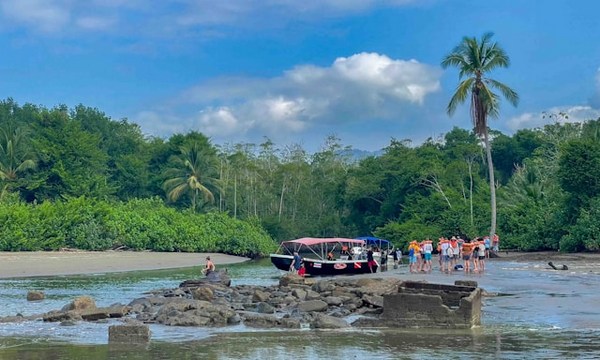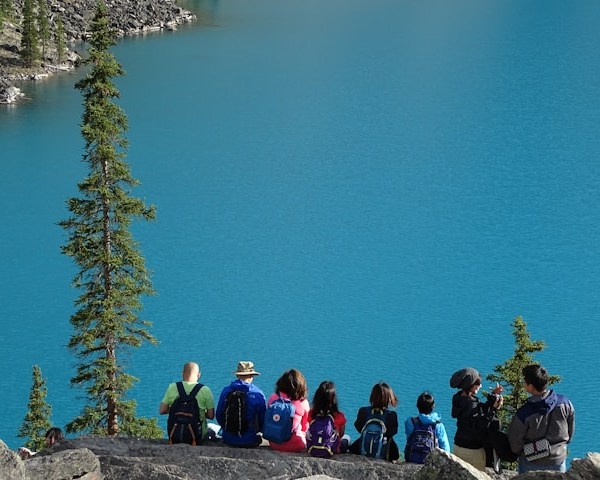Key Highlights
- Promotes conservation and eco-friendly travel to preserve natural habitats.
- Creates jobs and supports local economies.
- Preserves indigenous cultures and traditions.
- Encourages eco-friendly accommodations and low-impact activities.
- Balances tourism growth with environmental conservation.
Introduction
Sustainable eco-tourism offers enjoyable travel experiences while promoting conservation and supporting local communities.
Choosing eco-friendly options allows travelers to contribute to environmental protection and socio-economic development.
Why Choose Sustainable Eco-Tourism?

Sustainable eco-tourism provides numerous benefits beyond just enjoyable experiences. It helps preserve natural treasures by promoting conservation and responsible travel practices.
This approach supports local communities by creating job opportunities and encouraging the use of local resources.
By embracing sustainable eco-tourism, travelers contribute to environmental protection and socio-economic development in the places they visit.
The Impact of Tourism on the Environment
Tourism can have both positive and negative impacts on the environment. While it promotes economic growth and cultural exchange, it also increases the demand for resources like water and energy, leading to greater waste generation.
The development of tourist infrastructure, such as hotels and roads, can disrupt habitats and pose threats to local species.
Benefits to Local Communities

Sustainable eco-tourism brings significant benefits to local communities. It provides employment opportunities and supports local businesses, helping to keep money within the community.
This type of tourism helps preserve indigenous cultures and traditions by fostering economic growth that respects local heritage.
Tourists who choose eco-friendly travel contribute to the well-being of local residents and the sustainability of their communities.
Preserving Cultures and Traditions
Sustainable travel is essential for maintaining and respecting local cultures. Tourists who engage with native communities and participate in traditional activities help sustain the social and cultural fabric of these places.
This approach not only enriches the travel experience but also ensures the preservation of unique identities and customs in a rapidly globalizing world.
How to Travel Sustainably

Traveling sustainably involves making conscious choices to minimize environmental impact and support local communities.
Choose eco-friendly accommodations certified by reputable organizations. Use public transportation, bicycles, or walk whenever possible.
Support local businesses by purchasing locally-made products and dining at local restaurants.
Adopt eco-friendly habits such as reusing towels, conserving water and energy, and respecting wildlife and natural habitats.
Choosing Eco-Friendly Accommodations
Selecting sustainable accommodations is crucial for eco-friendly travel. Look for properties that prioritize sustainability through the use of renewable energy sources and practices that minimize their carbon footprint.
Certifications from organizations like the Global Sustainable Tourism Council can guide you in choosing the right places to stay.
These accommodations often participate in environmental initiatives, helping protect the environment while providing a thoughtful and enjoyable travel experience.
Minimizing Your Carbon Footprint

Reducing your carbon footprint while traveling is essential for sustainability. Use public transport, opt for direct flights, and pack light to conserve fuel.
Choose environmentally friendly hotels and practice energy conservation during your stay. Participate in carbon offset programs to balance the emissions from your travel.
Consider local destinations or fewer, longer trips to reduce frequent travel impacts. Engage in low-impact activities and always respect the environment to contribute to a more sustainable future.
Supporting Local Economies
Eco-friendly travel significantly benefits local economies. Purchasing locally-made souvenirs, dining at family-run restaurants, and choosing local tour operators ensure that money stays within the community.
This support strengthens local businesses and contributes to sustainable development. By supporting small businesses and craftspeople, travelers help improve the quality of life for local residents and foster economic resilience in eco-tourism destinations.
Challenges Facing Eco-Tourism

Balancing tourism growth with environmental conservation is a major challenge. Managing visitor numbers to prevent environmental degradation requires careful planning and execution.
Ensuring that tourism benefits local communities without disrupting their way of life is essential. Promoting economic growth through tourism while preserving natural and cultural resources is a delicate balance that sustainable practices aim to achieve.
Balancing Development and Conservation
Sustainable eco-tourism must strike a balance between development and conservation. Planning tourist activities to minimize environmental impact and respecting local cultures is crucial.
Integrating sustainable practices and involving local communities ensures that eco-tourism can thrive without compromising the unique qualities of these destinations.
This balance helps maintain ecological integrity while supporting community growth and development.
Addressing Over-Tourism in Popular Destinations

Over-tourism in popular destinations can lead to environmental and cultural degradation. To mitigate this, some areas limit visitor numbers, promote off-peak travel, and encourage exploration of lesser-known attractions.
Travelers can contribute by choosing sustainable tourism options and behaving respectfully towards local traditions and environments. Spreading tourism more evenly reduces pressure on popular sites, preserving them for future generations.
Conclusion
Sustainable eco-tourism offers a pathway to explore the world responsibly, ensuring that natural and cultural treasures are preserved for future generations.
Adopting sustainable practices enriches travel experiences and significantly contributes to protecting our planet. Through thoughtful choices and respect for local cultures and environments, everyone can help build a sustainable future in tourism.
Explore the Hidden Health Benefits of Traveling
Key Highlights Traveling reduces stress and improves mental well-being. It enhances creativity by exposing you to new experiences. Traveling improves physical fitness through exploration and…
7 Healthy Habits to Maintain While Traveling
Key Highlights Stay hydrated, eat well, and stay active during travel. Ensure restful sleep, practice stress reduction, and keep up with personal hygiene for well-being….
Minimalist Travel: Less Baggage, More Memories
Key Takeaways Learn to pack only essential items for any trip, keeping your luggage light. Enjoy the benefits of minimalist travel: less stress, more freedom,…
Travel Hygiene Tips: Stay Fresh on the Go
Key Highlights Key practices include frequent handwashing, showering, and oral care. Packing a portable hygiene kit can help you stay fresh on the go. Advanced…



